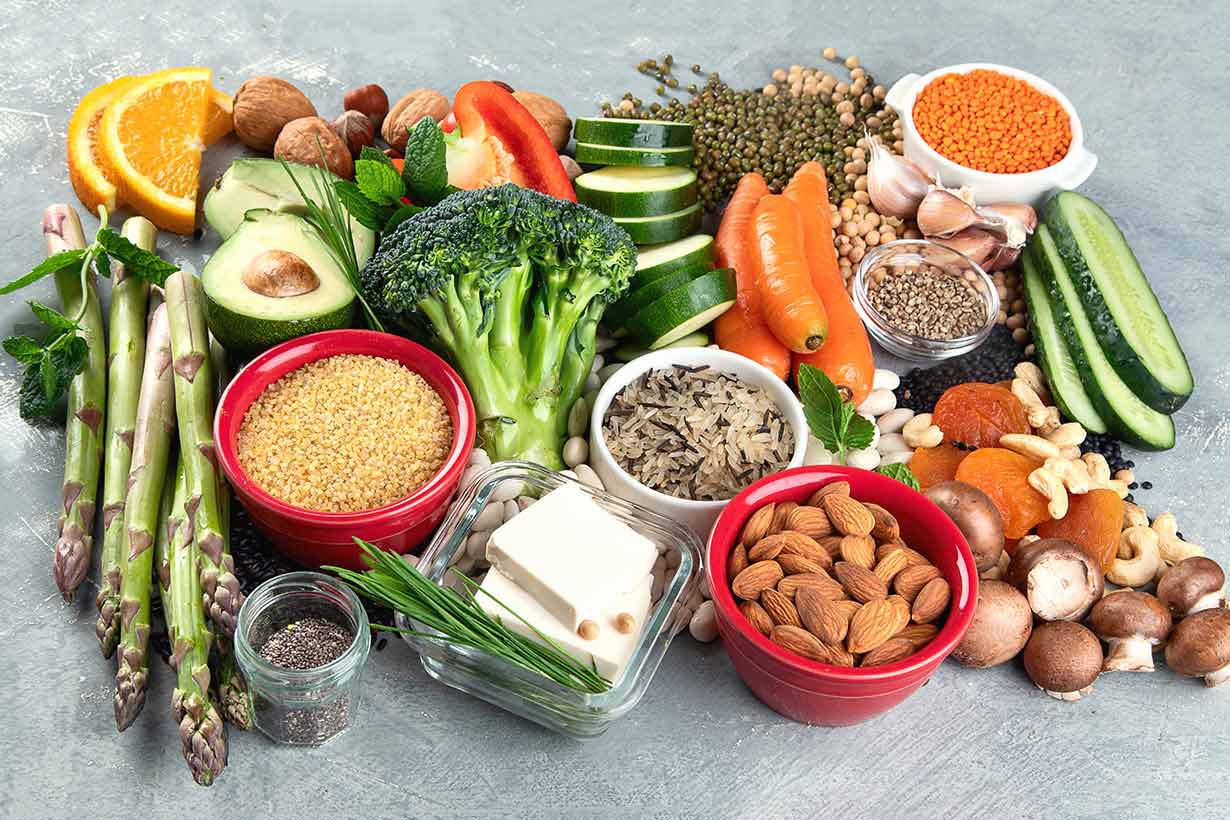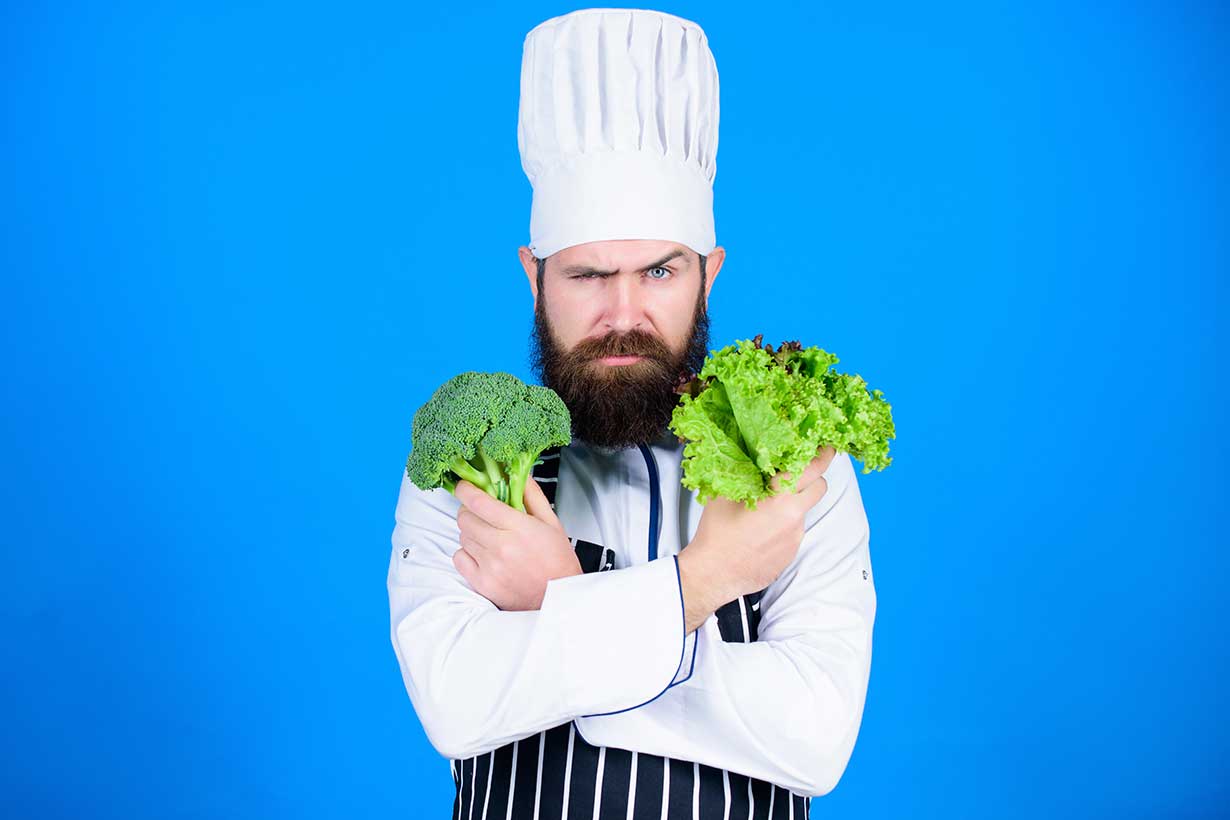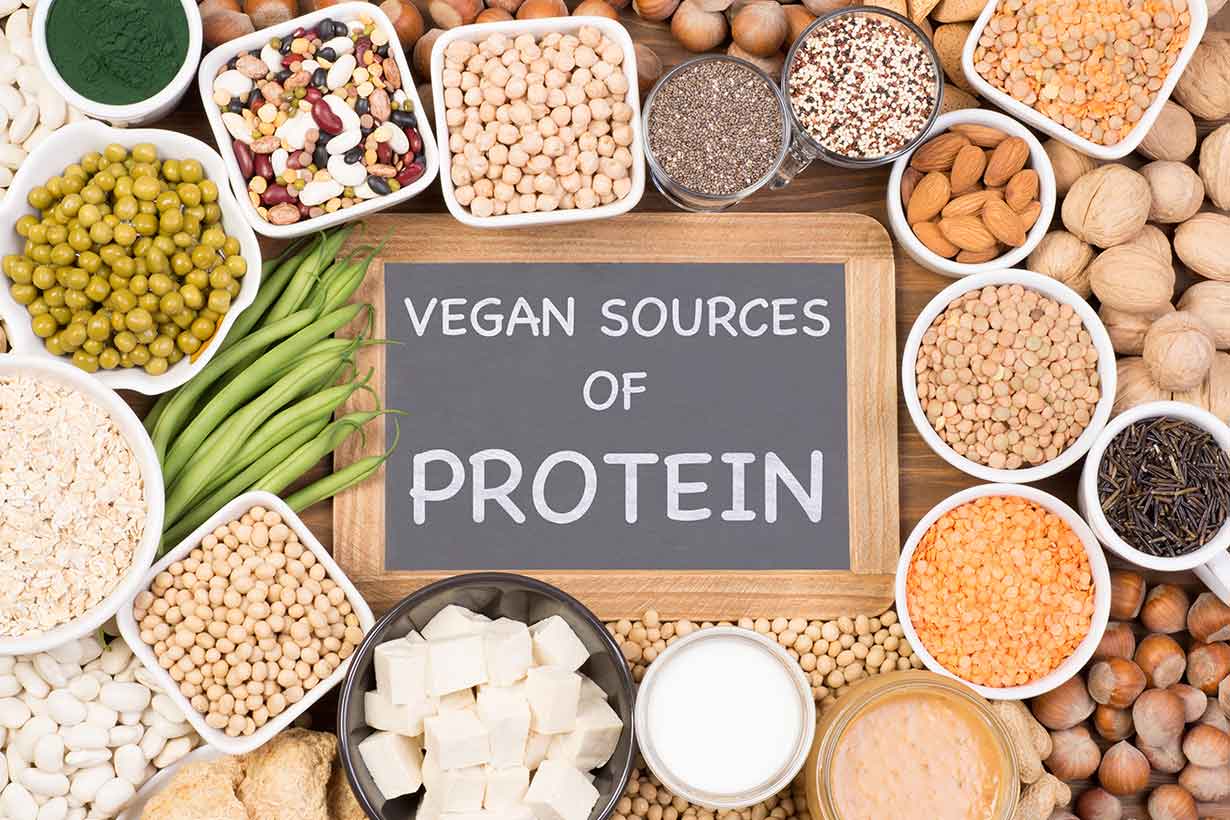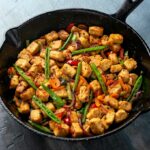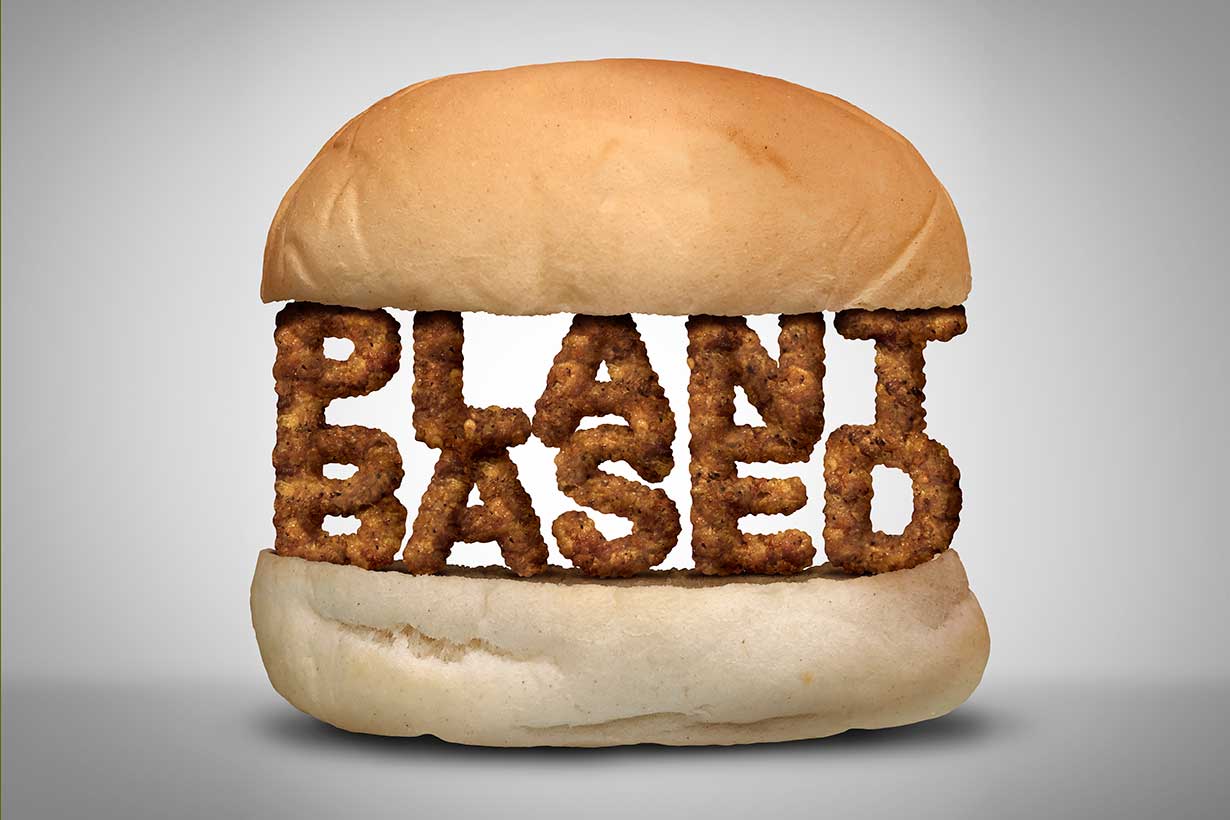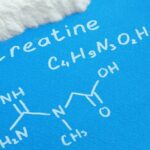Vegan and predominantly plant-based diets have gradually increased in popularity over the last several years.
Carefully formulated vegan diets can meet all nutrient requirements. However, many people do not follow a nutritionally adequate vegan diet.
For example, veganism has been associated with low intake levels of vitamins B2, B3 and B12, vitamin D, iodine, zinc, and calcium, among other nutrients (1).
This article provides a list of vegan-friendly foods for every vitamin and mineral.
What are the best dietary sources for each nutrient?
Table of contents
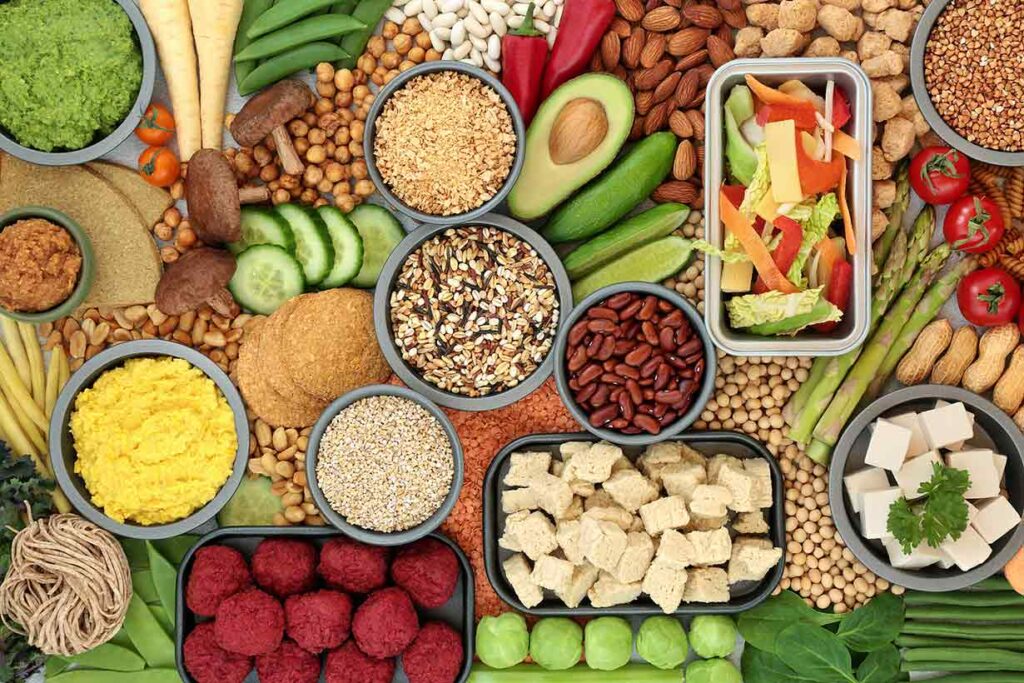
Vegan-Friendly Dietary Sources of Every Vitamin and Mineral
This guide will list ten vegan-friendly dietary sources for each vitamin and mineral.
Furthermore, for each dietary source, the guide will present the amount of the nutrient a typical serving provides and how that contributes to the recommended daily value.
The USDA’s FoodData Central database is the source of all nutritional data. Recommended daily values (% DV) have been calculated using this data alongside the FDA’s published daily values.
Calcium
Calcium has a daily value of 1300 mg (1).
Some vegan foods that provide high amounts of calcium include:
- Tofu, firm, prepared with calcium: 861 mg calcium per 126g half cup, 66% DV (source)
- Almond milk, unsweetened, fortified: 449 mg calcium per 244-gram cup, 35% DV (source)
- Tofu, regular, prepared with calcium: 434 mg calcium per 124g half cup, 33% DV (source)
- Kale, cooked: 345 mg calcium per 130g cup, 27% DV (source)
- Orange juice, fortified with calcium: 349 mg calcium per 249g cup, 27% DV (source)
- Collard greens, cooked: 324 mg calcium per 130g cup, 25% DV (source)
- Soy milk, fortified with calcium: 300 mg calcium per 244g cup, 23% DV (source)
- Sesame seeds, toasted: 280 mg calcium per ounce (28.35g), 22% DV (source)
- Mustard greens, cooked: 172 mg calcium per 140g cup, 13% DV (source)
- Bok choy, cooked: 158 mg calcium per 170g cup, 12% DV (source)
Copper
The daily value for copper is 0.9 mg (1).
Here are come vegan-friendly, copper-rich foods:
- Shiitake mushrooms, cooked: 1.3 mg copper per 145g cup, 144% DV (source)
- White button mushrooms, cooked: 0.786 mg copper per 156g cup, 87% DV (source)
- Sesame seeds, toasted: 0.7 mg copper per ounce (28g), 78% DV (source)
- Adzuki beans, cooked: 0.685 mg copper per 230g cup, 76% DV (source)
- Tofu, firm: 0.476 mg copper per 126g half cup, 53% DV (source)
- Soy protein isolate: 0.454 mg copper per ounce (28g) scoop, 50% DV (source)
- Sweet potato, cooked, peel eaten: 0.451 mg copper per large (251g) sweet potato, 50% DV (source)
- Oats, raw: 0.391 mg copper per 100 grams, 43% DV (source)
- Avocado: 0.285 mg per 150g avocado fruit, 32% DV (source)
- Buckwheat groats, cooked: 0.245 mg copper per 168g cup, 27% DV (source)
Iodine
The recommended daily value for iodine is 150 mcg per day (1).
However, it isn’t easy to measure the amount of iodine in foods accurately. For instance, local soil iodine content can mean that iodine can vary substantially between samples of the same foods.
For this reason, the USDA does not provide nutritional data showing standard iodine content.
That being said, the National Institutes of Health have provided a resource showing the estimated iodine content of iodine-rich foods (2).
Based on this resource, here are some vegan-friendly foods that should provide a good source of iodine:
- Bread, white, enriched with iodate dough conditioner: 320 mcg iodine per 2 slices, 213% DV (source)
- Bread, whole-wheat, made with iodate dough conditioner: 309 mcg iodine per 2 slices, 206% DV (source)
- Seaweed, nori, dried: 116 mcg iodine per 5g (2 tablespoons), 77% DV (source)
- Iodized table salt: 76 mcg iodine per 1/4 teaspoon, 51% DV (source)
- Fruit cocktail, canned: 6 mcg iodine per 1/2 cup, 4% DV (source)
- Apple juice: 1 mcg iodine per cup, 1% DV (source)
Iron
Iron has a recommended daily value of 18 mg (1).
Here are some iron-rich foods suitable for a vegan diet:
- Morel mushrooms, raw weight: 8.05 mg iron per cup, 45% DV (source)
- Lentils, cooked: 6.59 mg iron per 198g cup, 37% DV (source)
- Amaranth, cooked: 5.17 mg iron per 246g cup, 29% DV (source)
- Teff, cooked: 5.17 mg iron per 252g cup, 29% DV (source)
- Lima beans, cooked: 4.49 mg iron per 188g cup, 25% DV (source)
- Sesame seeds, toasted: 4.2 mg iron per ounce (28g), 23% DV (source)
- Edamame, cooked: 3.52 mg iron per 160-gram cup, 20% DV (source)
- Tofu, raw, firm: 3.35 mg iron per half cup, 19% DV (source)
- Oat bran, cooked: 1.93 mg iron per 219g cup, 11% DV (source)
- Coconut milk, from grated meat and water, canned: 0.495 mg iron per 15g tablespoon, 3% DV (source)
Additionally, it is worth noting that non-heme iron (found in plants) is not as bioavailable as heme iron (found in animal foods). However, eating vitamin C-containing foods alongside sources of non-heme iron helps to increase the latter’s absorption (3, 4).
Magnesium
The recommended daily value for magnesium is 420 mg per day (1).
Some of the best magnesium sources for a vegan diet include:
- Hemp seeds: 210 mg magnesium per three-tablespoon (30g), 50% DV (source)
- Amaranth, cooked: 160 mg magnesium per 246g cup, 38% DV (source)
- Spinach, cooked: 157 mg magnesium per 180g cup, 37% DV (source)
- Adzuki beans, cooked: 120 mg magnesium per 230g cup, 37% DV (cooked)
- Swiss chard, cooked: 150 mg magnesium per 175g cup, 36% DV (source)
- Edamame, cooked: 99.2 mg magnesium per 160g cup, 24% DV (source)
- Teff, cooked: 126 mg magnesium per 252g cup, 30% DV (source)
- Lima beans, cooked: 80.8 mg magnesium per 188g cup, 19% DV (source)
- Firm tofu: 73.1 mg magnesium per 126g half cup, 17% DV (source)
- Pumpkin seeds, raw weight: 156 mg magnesium per ounce (28.35g), 5% DV (source)
Manganese
The daily value for manganese is 2.3 mg (1).
Some vegan-friendly dietary sources of manganese include:
- Teff, cooked: 7.21 mg manganese per 252g cup, 313% DV (source)
- Wheat germ, toasted: 5.67 mg manganese per ounce (28.35g), 247% DV (source)
- Oats, raw weight: 2.94 mg manganese per 81g cup, 128% DV (source)
- Hemp seeds: 2.28 mg manganese per 3-tablespoon (30g), 99% DV (source)
- Pineapple, raw: 1.53 mg manganese per 165g cup of pineapple chunks, 67% DV (source)
- Tofu, firm: 1.49 mg manganese per 126g cup, 65% DV (source)
- Cloves, ground: 1.26 mg manganese per 2.1g teaspoon, 55% DV (source)
- Lima beans, cooked: 0.97 mg manganese per 188g cup, 42% DV (source)
- Black tea, brewed: 0.519 mg manganese per 8 fluid ounce cup (237g), 23% DV (source)
- Blueberries, raw: 0.497 mg manganese per 148g cup, 22% DV (source)
Phosphorus
Phosphorus has a recommended daily value of 1250 mg per day (1).
Here are some phosphorus-rich foods suited for a vegan diet:
- Hemp seeds: 495 mg phosphorus per three-tablespoon (30g), 40% DV (source)
- Adzuki beans, cooked: 386 mg phosphorus per 230g cup, 31% DV (source)
- Lentils, cooked: 356 mg phosphorus per 198g cup, 28% DV (source)
- Oats, raw: 332 mg phosphorus per 81g cup, 27% DV (source)
- Pumpkin seeds, without shell: 332 mg phosphorus per ounce (28.35g), 27% DV (source)
- Edamame, cooked: 262 mg phosphorus per 160g cup, 21% DV (source)
- Amaranth, cooked: 246 mg phosphorus per 246g cup, 20% DV (source)
- Tofu, firm: 239 mg phosphorus per 126g half cup, 19% DV (source)
- Soy protein isolate: 220 mg phosphorus per ounce (28.35g) scoop, 18% DV (source)
- Buckwheat, cooked: 118 mg phosphorus per 168g cup, 9% DV (source)
Potassium
The daily value for potassium is 4700 mg per day (1).
The following vegan-friendly foods are all excellent sources of potassium:
- Adzuki beans, cooked: 1220 mg potassium per 230g cup, 26% DV (source)
- Beet greens, cooked: 1190 mg potassium per 150g cup, 25% DV (source)
- Spinach, cooked: 1180 mg potassium per 180g cup, 25% DV (source)
- Lima beans, cooked: 955 mg potassium per 188g cup, 20% DV (source)
- Potato, cooked, peel eaten: 906 mg potassium per 170g medium potato, 19% DV (source)
- Avocado: 728 mg potassium per 150g avocado fruit, 15% DV (source)
- Sweet potato, baked, peel eaten: 717 mg potassium per 150g medium potato, 15% DV (source)
- Edamame, cooked: 675 mg potassium per 160g cup, 14% DV (source)
- Banana: 451 mg potassium per 126g banana, 10% DV (source)
- Durian, raw or frozen: 436 mg potassium per 3.5 oz (100g), 9% DV (source)
Selenium
Selenium has a daily value of 55 mcg (1).
Here are some of the best vegan selenium sources:
- Brazil nuts: 538 mcg selenium per ounce (28.35g), 978% DV (source)
- Kamut, cooked: 54.9 mcg selenium per 172g cup, 100% DV (source)
- Whole grain pasta, cooked: 50.5 mcg selenium per 140g cup, 92% DV (source)
- Couscous, cooked: 43.8 mcg selenium per 160g cup, 80% DV (source)
- Shiitake mushrooms, cooked: 36 mcg selenium per 145g cup, 65% DV (source)
- Straw mushrooms, canned: 27.7 mcg selenium per 182g cup, 50% DV (source)
- Sunflower seeds, without shell: 22.5 mcg selenium per ounce (28.35g), 41% DV (source)
- Tofu, firm: 21.9 mcg selenium per 126g half cup, 40% DV (source)
- Cremini mushrooms, raw weight: 18.7 mcg selenium per 72g cup, 34% DV (source)
- Chia seeds: 15.6 mcg selenium per ounce (28.35g), 28% DV (source)
Sodium
Sodium has a daily value of 2300 mg (1).
Many people consume excessive amounts of sodium rather than too little. However, here are some of the most sodium-rich foods that can fit with a vegan diet:
- Miso paste: 3730 mg sodium per 3.5 ounces (100g), 162% DV (source)
- Table salt: 2360 mg sodium per 6.1g teaspoon, 103% DV (source)
- Sauerkraut: 925 mg sodium per 140g cup, 40% DV (source)
- Soy sauce: 878 mg sodium per 16g tablespoon, 38% DV (source)
- Baked beans, canned: 871 mg sodium per 254g cup, 38% DV (source)
- Kimchi: 747 mg sodium per 150g cup, 32% DV (source) (NB: check ingredients)
- French baguette bread: 385 mg sodium per 64g regular slice, 16% DV (source)
- Cucumber pickles: 326 mg sodium per 40.4g spear, 14% DV (source)
- Peanut butter: 193 mg sodium per 45g single serving, 8% DV (source)
- Peanuts, salted: 90.7 mg sodium per ounce (28.35g), 4% DV (source)
Zinc
The daily value for zinc is 11 mg (1).
Here are some zinc-rich, vegan-friendly foods:
- Bran Flakes, enriched: 18.6 mg zinc per 29g serving, 169% DV (source)
- Adzuki beans, cooked: 4.07 mg zinc per 230g cup, 37% DV (source)
- Kamut, cooked: 3.16 mg zinc per 172g cup, 29% DV (source)
- Hemp seeds: 2.97 mg zinc per three-tablespoon (30g), 27% DV (source)
- Oats, raw weight: 2.95 mg zinc per 81g cup, 27% DV (source)
- Teff, cooked: 2.8 mg zinc per 252g cup, 25% DV (source)
- Lentils, cooked: 2.52 mg zinc per 198g cup, 23% DV (source)
- Pumpkin seeds, without shell: 2.17 mg zinc per ounce (28.35g), 20% DV (source)
- Tofu, firm: 1.98 mg zinc per 126g cup, 18% DV (source)
- Green peas, cooked: 1.06 mg zinc per 160g cup, 10% DV (source)
Vitamin A, Retinol Activity Equivalents (RAE)
The recommended daily value for vitamin A is 900 mcg RAE (1).
Here are some excellent vegan-friendly sources of the vitamin:
- Sweet potato, cooked, with skin: 1730 mcg vitamin A RAE per 180g large sweet potato, 192% DV (source)
- Carrot, cooked: 1280 mcg vitamin A RAE per 155g cup, 142% DV (source)
- Butternut squash, cooked: 1140 mcg vitamin A RAE per 205g cup, 127% DV (source)
- Pumpkin, cooked: 996 mcg vitamin A RAE per 230g cup, 107% DV (source)
- Spinach, cooked: 941 mcg vitamin A RAE per 180g cup, 105% DV (source)
- Swiss chard, cooked: 536 mcg vitamin A RAE per 175g cup, 60% DV (source)
- Cantaloupe melon: 362 mcg vitamin A RAE per 156g cup, 40% DV (source)
- Kale, cooked: 318 mcg vitamin A RAE per 130g cup, 35% DV (source)
- Mustard greens, cooked: 216 mcg vitamin A RAE per 140g cup, 24% DV (source)
- Apricot, dried: 180 mcg vitamin A RAE per 3.5 ounces (100g), 20% DV (source)
Vitamin C
Vitamin C has a recommended daily value of 90 mg (1).
Some of the best vitamin C sources for a vegan diet include:
- Yellow pepper, sweet: 342 mg vitamin C per 186g pepper, 380% DV (source)
- Red pepper, sweet: 210 mg vitamin C per 164g pepper, 233% DV (source)
- Black currants: 203 mg vitamin C per 112g cup, 226% DV (source)
- Guava: 125 mg vitamin C per 55g guava fruit, 139% DV (source)
- Orange juice, 100% freshly squeezed: 124 mg vitamin C per 248g cup, 138% DV (source)
- Broccoli, cooked: 122 mg vitamin C per 155g cup, 136% DV (source)
- Brussels sprouts, cooked: 116 mg vitamin C per 155g cup, 129% DV (source)
- Green chili pepper: 109 mg vitamin C per 45g pepper, 121% DV (source)
- Kiwi fruit: 56 mg vitamin C per 75g kiwi fruit, 62% DV (source)
- Lemon: 34.4 mg vitamin C per 65g lemon, 38% DV (source)
Vitamin D
The daily value for vitamin D is 20 mcg (1).
Through safe sun exposure, sunlight is arguably the easiest way to get vitamin D.
However, there are also some dietary sources of the vitamin. Here are some options that are suitable for a vegan diet:
- Cremini mushrooms, UV exposed, raw weight: 27.8 mcg vitamin D per 87g cup, 139% DV (source)
- White button mushrooms, UV exposed, raw weight: 25.2 mcg vitamin D per 96g cup, 126% DV (source)
- Portabella mushrooms, UV exposed, grilled: 15.9 mcg vitamin D per 121g cup, 80% DV (source)
- Tofu, silken, fortified: 3.8 mcg vitamin D per 3.5 ounces (100g), 19% DV (source)
- Soy milk, fortified: 2.92 mcg vitamin D per 243g cup, 15% DV (source)
- Soy-based yogurt, fortified: 2.95 mcg vitamin D per 227g container, 15% DV (source)
- Almond milk, unsweetened, fortified: 2.44 mcg vitamin D per 244g cup, 12% DV (source)
- Bran Flakes, enriched: 2.49 mcg per 29g serving, 12% DV (source)
- Rice milk, unsweetened, fortified: 2.4 mcg vitamin D per 240g cup, 12% DV (source)
- Corn Flakes, enriched: 1.99 mcg vitamin D per 28g serving, 10% DV (source)
Vitamin E
Vitamin E has a recommended daily value of 15 mg (1).
Here are some of the best vegan vitamin E sources:
- Bran Flakes, vitamin E enriched: 23.3 mg vitamin E per 29g serving, 155% DV (source)
- Wheat germ oil: 20.9 mg vitamin E per 14g tablespoon, 139% DV (source)
- Sunflower seeds, without shell: 7.4 mg vitamin E per ounce (28.35g), 49% DV (source)
- Almonds: 7.26 mg vitamin E per ounce (28.35g), 48% DV (source)
- Soy milk, enriched: 6.12 mg vitamin E per 243g cup, 41% DV (source)
- Sunflower oil: 5.75 mg vitamin E per 14g tablespoon, 38% DV (source)
- Hazelnuts: 4.2 mg vitamin E per ounce (28.35g), 28% DV (source)
- Peanut butter: 4.1 mg vitamin E per 45g serving, 27% DV (source)
- Pine nuts: 2.61 mg vitamin E per ounce (28.35g), 17% DV (source)
- Olive oil: 2.02 mcg vitamin E per 14g tablespoon, 13% DV (source)
Vitamin K
The daily value for vitamin K is 120 mcg (1).
Here are some vegan-friendly vitamin K sources:
- Spinach, cooked: 1020 mcg vitamin K per 180g cup, 850% DV (source)
- Turnip greens, cooked: 851 mcg vitamin K per 164g cup, 709% DV (source)
- Beet greens, cooked: 697 mcg vitamin K per 144g cup, 581% DV (source)
- Collard greens, cooked: 610 mcg vitamin K per 130g cup, 508% DV (source)
- Kale, cooked: 543 mcg vitamin K per 130g cup, 453% DV (source)
- Broccoli raab, cooked: 388 mcg vitamin K per 170g cup, 323% DV (source)
- Broccoli, cooked: 164 mcg vitamin K per 155g cup, 137% DV (source)
- Parsley: 62.3 mcg vitamin K per 3.8g tablespoon, 52% DV (source)
- Green leaf lettuce, raw weight: 45.4 mcg vitamin K per 36g cup, 38% DV (source)
- Romaine lettuce, raw weight: 44.1 mcg vitamin K per 25g cup, 37% DV (source)
Thiamin (B1)
The recommended daily value for thiamin is 1.2 mg (1).
Some good vegan sources of thiamin include:
- Wheat germ, toasted: 0.473 mg thiamin per ounce (28.35g), 39% DV (source)
- Navy beans, cooked: 0.431 mg thiamin per 182g cup, 36% DV (source)
- Black beans, cooked: 0.42 mg thiamin per 172g cup, 35% DV (source)
- Oats, raw: 0.373 mg thiamin per 81g cup, 31% DV (source)
- Lentils, cooked: 0.335 mg thiamin per 198g cup, 28% DV (source)
- Rice, white, enriched, cooked: 0.305 mg thiamin per 186g cup, 25% DV (source)
- Sesame seeds, toasted: 0.228 mg thiamin per ounce (28.35g), 19% DV (source)
- Macadamia nuts, dry roasted: 0.201 mg thiamin per ounce (28.35g), 17% DV (source)
- Pistachio nuts, without shell: 0.191 mg thiamin per ounce (28.35g), 16% DV (source)
- Rye bread: 0.139 mg thiamin per 32g slice, 12% DV (source)
Riboflavin (B2)
The daily value for riboflavin is 1.3 mg (1).
The following foods are good vegan sources of riboflavin:
- Rockstar Energy Drink, Sugar-Free: 3.41 mg riboflavin per 240g cup, 262% DV (source)
- Bran Flakes, enriched: 2.11 mg riboflavin per 29g serving, 162% DV (source)
- Yeast extract spread: 1.05 mg riboflavin per 6g teaspoon, 81% DV (source)
- Tempeh: 0.594 mg riboflavin per 166g cup, 46% DV (source)
- Soybeans, cooked: 0.466 mg riboflavin per 185g cup, 36% DV (source)
- Soy milk: 0.449 mg riboflavin per 244g cup, 35% DV (source)
- Almonds: 0.323 mg riboflavin per ounce (28.35g), 25% DV (source)
- Durian: 0.2 mg riboflavin per 3.5 ounces (100g), 15% DV (source)
- Tofu, firm: 0.129 mg riboflavin per 126g half cup, 11% DV (source)
- Paprika (spice): 0.084 mg riboflavin per 6.8g tablespoon, 6% DV (source)
Niacin (B3)
Niacin has a daily value of 16 mg niacin equivalents (mg NE) (1).
The following foods are all good vegan sources of niacin:
- Bran Flakes, enriched: 26.3 mg niacin per 29g serving, 164% DV (source)
- Rockstar Energy Drink, Sugar-Free: 20.0 mg niacin per 240g cup, 125% DV (source)
- Soy milk, enriched: 8.0 mg niacin per 243g cup, 50% DV (source)
- Portabello mushrooms, grilled: 7.58 mg niacin per 121g cup, 47% DV (source)
- Brown rice, cooked: 5.17 mg niacin per 202g cup, 32% DV (source)
- Spanish peanuts, raw weight: 4.51 mg niacin per ounce (28.35g), 28% DV (source)
- Avocado: 2.61 mg niacin per 150g avocado fruit, 16% DV (source)
- Wild rice, cooked: 2.12 mg niacin per 164g cup, 13% DV (source)
- Buckwheat groats, cooked: 1.58 mg niacin per 168g cup, 10% DV (source)
- Paprika (spice): 0.687 mg niacin per 6.8g tablespoon, 4% DV (source)
Pantothenic acid (B5)
The daily value of pantothenic acid is 5 mg (1).
Here are some good vegan pantothenic acid sources:
- Rockstar Energy Drink: 10.0 mg per 240g cup, 200% DV (source)
- Bran Flakes, enriched: 8.64 mg pantothenic acid per 29g serving, 173% DV (source)
- Shiitake mushrooms, cooked: 5.2 mg pantothenic acid per 145g cup, 104% DV (source)
- White button mushrooms, cooked: 3.37 mg pantothenic acid per 156g cup, 67% DV (source)
- Dried Agar seaweed: 3.02 mg pantothenic acid per 3.5 ounces (100g), 60% DV (source)
- Avocado: 2.08 mg pantothenic acid per 150g cup, 42% DV (source)
- Sunflower seeds, toasted: 2.0 mg pantothenic acid per ounce (28.35g), 40% DV (source)
- Lentils, cooked: 1.26 mg pantothenic acid per 198g cup, 25% DV (source)
- Mung beans, cooked: 0.828 mg pantothenic acid per 202g cup, 17% DV (source)
- Paprika (spice): 0.171 mg pantothenic acid per 6.1g tablespoon, 3% DV (source)
Vitamin B6
Vitamin B6 has a daily value of 1.7 mg (1).
Here are some of the best vegan B6 sources:
- Potato, baked, with skin: 0.538 mg vitamin B6 per medium (173g) potato, 32% DV (source)
- Sweet potatoes, cooked, with skin: 0.515 mg vitamin B6 per large (180g) sweet potato, 30% DV (source)
- Lentils, cooked: 0.352 mg vitamin B6 per 198g cup, 21% DV (source)
- Amaranth, cooked: 0.278 mg vitamin B6 per 246g cup, 16% DV (source)
- Wheat germ, toasted: 0.277 mg vitamin B6 per ounce (28.35g), 16% DV (source)
- Teff, cooked: 0.244 mg vitamin B6 per 252g cup, 14% DV (source)
- Sunflower seeds, toasted: 0.228 mg vitamin B6 per ounce (28.35g), 13% DV (source)
- Chickpeas, cooked: 0.228 mg vitamin B6 per 164g cup, 13% DV (source)
- Pinto beans, cooked: 0.392 mg vitamin B6 per 171g cup, 23% DV (source)
- Paprika (spice): 0.146 mg vitamin B6 per 6.1g tablespoon, 9% DV (source)
Folate (B9)
The daily value for folate is 400 mcg of dietary folate equivalents (DFE) (1).
Here are some folate-rich foods for a vegan diet:
- Edamame, cooked: 458 mcg DFE per 160g cup, 115% DV (source)
- Lentils, cooked: 358 mcg DFE per 198g cup, 90% DV (source)
- Blackeyed peas, cooked: 356 mcg DFE per 171g cup, 89% DV (source)
- Mung beans, cooked: 321 mcg DFE per 202g cup, 80% DV (source)
- Spinach, cooked: 308 mcg DFE per 180g cup, 77% DV (source)
- Pinto beans, cooked: 294 mcg DFE per 171g cup, 74% DV (source)
- Adzuki beans, cooked: 278 mcg DFE per 230g cup, 70% DV (source)
- Asparagus, cooked: 243 mcg DFE per 180g cup, 61% DV (source)
- White rice, short-grain, enriched, cooked: 180 mcg DFE per 186g cup, 45% DV (source)
- Avocado: 122 mcg DFE per 150g avocado fruit, 31% DV (source)
Vitamin B12
Vitamin B12 has a recommended daily value of 2.4 mcg (1).
Notably, vitamin B12 is one of the nutrients that vegan diets don’t provide.
Since plant foods do not naturally contain vitamin B12, consuming enough B12-fortified foods or taking a B12 supplement is essential for vegans.
Here are some examples of foods typically fortified with vitamin B12:
- Rockstar energy drink, sugar-free: 6 mcg per 240g cup, 250% DV (source)
- Bran Flakes, fortified: 6 mcg vitamin B12 per 29g serving, 250% DV (source)
- Coconut milk beverage, fortified: 3 mcg vitamin B12 per 240g cup, 125% DV (source)
- Beyond burger, plant-based pattie: 2.4 mcg vitamin B12 per 113g patty, 100% DV (source)
- Tofu, firm, fortified: 1.45 mcg vitamin B12 per 3.5 ounces (100g), 60% DV (source)
- Soy milk, fortified, unsweetened: 1.33 mcg vitamin B12 per 3.5 ounces (100g), 55% DV (source)
Aside from the above, it is possible to find various plant milk, bread, and meat substitute products (e.g. Beyond Beef or the Awesome Burger) that have been fortified with vitamin B12.
Check the ingredients label carefully to see if a product has been fortified or not.
Summary
Restricting particular food groups, as vegan diets do, increases the potential for nutrient deficiencies, mainly if the diet is not well-planned.
However, it is possible to follow a vegan diet while getting enough protein and maintaining a sufficient intake of all essential vitamins and minerals.
Some of the foods mentioned in this guide may help with this.

